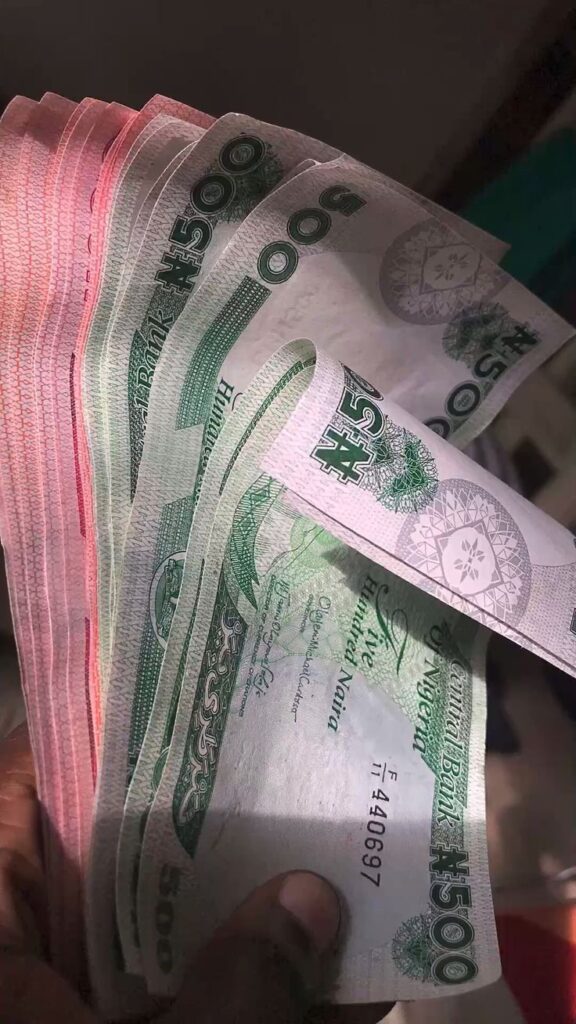Today, we think of banks as the guardians of money and malls as the beating heart of shopping and social life. But long before these modern structures came into existence, the Igbo people had already built their own ecosystem of commerce and culture anchored around the four sacred market days: Eke, Orie, Afor, and Nkwo.
These market days were more than just trading periods; they were a rhythm of life, guiding how communities bought, sold, celebrated, and even solved disputes. To the Igbo, the market was a living institution, one that combined finance, culture, and social order in a way that both sustained livelihoods and strengthened identity.
The Financial Ecosystem
Currency & Value: Early Mediums of Exchange
Before paper money and banknotes, the Igbo economy ran on cowries, trade by barter, and trust. Cowries, brought in through trade with coastal merchants, served as the closest thing to “currency.” Yet, barter was equally powerful; goats exchanged for yams, palm oil traded for cloth, and salt valued like gold.
Credit & Trust: The Invisible Bank
What truly made the Igbo market work was trust-based credit. A trader could walk into Nkwo market, take home yams or palm oil, and promise to pay back during the next market cycle. Credit was not secured by contracts or signatures but by reputation and community accountability. If someone defaulted, their family name or village bore the shame. This social pressure created a stronger guarantee than today’s collateral. In essence, the Igbo had an “invisible bank” where credit was issued, debts tracked, and repayment ensured, all without brick buildings.
Wealth Distribution: Circulation Across Towns
Markets rotated on the four-day cycle, ensuring that goods didn’t remain in one place. A farmer from one town sold at Eke, then traveled to Orie or Afor the next day, spreading both wealth and products across communities. This rotation meant that no single town monopolized trade. Instead, there was a balance: goods moved, wealth circulated, and the economy grew stronger through cooperation rather than hoarding.
The Cultural Ecosystem
Market as Identity
Every town had a market named after one of the four days; Eke, Orie, Afor, or Nkwo, and that day became tied to the town’s pride. If your town was known for its Nkwo market, it wasn’t just an economic hub, it was part of your identity and rhythm of life. People from neighboring villages would say, “We are going to Nkwo Ogbete” or “Eke Awka is today,” recognizing the market as a landmark that defined the town’s reputation.

Women as Economic Drivers
One of the most striking features of Igbo markets was the dominance of women in trade. Women were not just sellers of foodstuffs and cloth; they were the organizers and economic backbone of the system. They controlled pricing, set trade rules, and ensured goods flowed smoothly. In many families, while men farmed or crafted, it was the women who transformed those products into wealth through their market dealings. This gave women not only financial power but also strong social influence in decision-making within their communities.
In essence, the market was the heartbeat of Igbo culture. It was where wealth was exchanged, stories were told, songs were sung, and identities were reinforced.
Market Days vs. Modern Institutions
When we think of banks and malls today, we picture tall buildings, security systems, polished counters, and shelves lined with goods. Yet, the Igbo market days offered these same functions, without walls, without vaults, and without corporate logos.
Like Banks: Credit, Trust, and Savings in Goods
Igbo markets were early prototypes of financial institutions. Just as banks issue loans, traders extended credit based on trust. Just as people today deposit savings, Igbo families “saved” in goods; storing yams, palm oil, or livestock until the right market day. Instead of formal interest rates, reputation and reliability were the currency of finance.
Like Malls: Hubs of Exchange and Lifestyle
Step into a mall today and you’ll find not just shops, but also entertainment, food courts, and meeting spots. Igbo markets were no different. They were multi-purpose spaces where trade blended seamlessly with culture. One could buy yams and cloth, watch a performance, settle a dispute, or hear the latest village gossip all in one place.
Resilient Without Walls
What’s most remarkable is that the Igbo system thrived without the structures we think are necessary today. There were no giant buildings, no locked vaults, no written contracts. Yet, trade flourished. Goods circulated, trust was maintained, and communities prospered. The system was decentralized but deeply connected, showing that strong human bonds can sometimes outperform physical infrastructure.
In many ways, the Igbo marketplace was a living institution; a natural version of banks and malls long before modern economies took shape.
Trust is Still the Greatest Currency
In the past, traders extended credit because a person’s word and reputation were powerful. Today, whether you’re running an online shop, freelancing, or managing a startup, trust remains your strongest asset. Customers return when they believe in your integrity. In fact, in an age of digital transactions and social media reviews, reputation travels even faster than it did in the markets of Orie and Nkwo.
Conclusion
Before banks locked away wealth or malls gathered crowds under glass, the Igbo marketplace had already taught us that commerce is life, and life is community. It was trust instead of contracts, songs instead of walls, and reputation instead of vaults.
As the Igbo say, “Ihe eji ama obodo bụ ahịa ya” – a town is known by its market. The market was the mirror of a people’s soul, where trade, culture, and identity intertwined.
And even today, in digital stalls and youthful hustles, that spirit endures. The spirit of Eke, Orie, Afor, and Nkwo still lives, in every act of trust, in every exchange, in every dream that moves from hand to hand.
